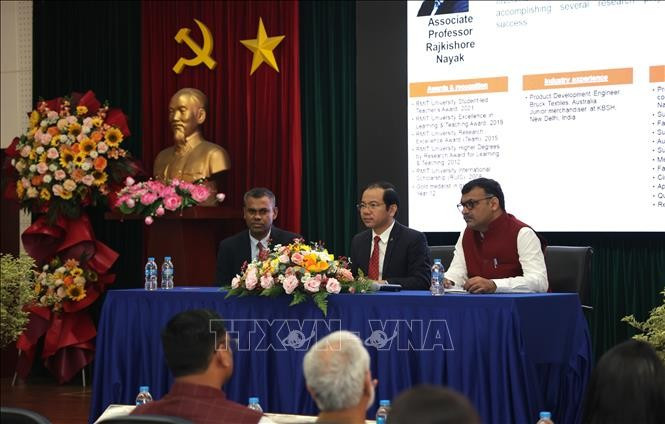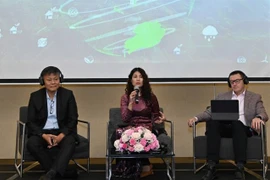HCM City (VNA) – In the context of global concerns about climate change, environmental protection, pollution levels and waste management, the role of corporations in promoting social causes and ethical business activities is becoming increasingly important, heard at a conference held in Ho Chi Minh City on June 16.
The 8th international conference on "Corporate Social Responsibility and Sustainable Development" (CSR 2025), jointly organised by the Southern Institute of Social Sciences under the Vietnam Academy of Social Sciences, India’s Education Research and Development Association, and the University of Finance-Marketing, received nearly 200 scientific reports and attracted more than 150 delegates, including nearly 50 foreign scientists from universities and research institutes in countries, such as India, Indonesia, Malaysia, Nigeria, and Canada.
Reports at the event stated that businesses need to shift their focus from just seeking profits to prioritising responsible products and effective services.
The conference aimed to encourage businesses to embrace Environmental, Social and Governance (ESG) principles in their core philosophy, policies, practices and processes. This also serves as a platform to address global challenges such as climate change, natural resource depletion, human rights issues, and recovery strategies to leverage ESG for the long-term benefit of businesses, stakeholders, and society.
According to Director of the Southern Institute of Social Sciences Assoc. Prof. Dr. Vu Tuan Hung, discussions opened up new research directions, promoted interdisciplinary and international cooperation, and made practical contributions to the process of sustainable development and social responsibility in the modern business environment.
Assoc. Prof. Dr. Rajkishore Nayak from School of Communication & Design at RMIT University Vietnam said that extended producer responsibility (EPR) is an environmental policy that requires manufacturers to take responsibility for the entire product life cycle, especially after consumption. EPR helps reduce waste, save resources, promote a circular economy, and achieve sustainable development goals.
Participants discussed issues related to corporate social responsibility and sustainable development, focusing on in-depth matters, such as corporate governance in the context of digital transformation; environmental responsibility, climate action; community commitment, social impact; and sustainable business models and innovation./.




























